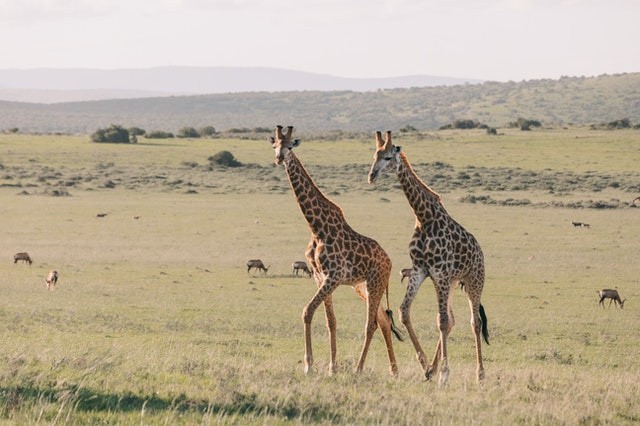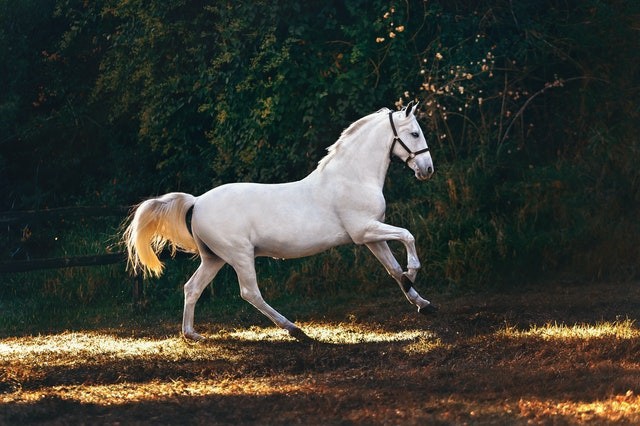In general, wild ungulates like deer, hippos, wild boar, or giraffes benefit humans with hunting, aesthetic value, and food sources it represents for a lot of communities.

Benefits and Disadvantages Associated with Hoofed Animals
Researchers from the Ecology Department at the Miguel Hernández University in Elche (MHU) and colleagues from the University of Granada (UGR) came to this conclusion after conducting a scientific literature review. Studying wild ungulates' advantages and disadvantages on a worldwide scale was the focus of this research project.
In Europe and North America, ungulates, or wild hoofed mammals, are becoming more common and widely distributed. They are returning to recolonize even in locations where they had a great presence decade or even centuries ago but were wiped off by a variety of factors, according to Phys.org.
In contrast, land usage for human expansion is causing severe declines in ungulate populations in Africa and Asia. For these reasons, ungulates and humans are becoming more and more connected, according to the research. Some part of this interaction has both beneficial and harmful effect.
Also Read : Cows and Cropland to Help Save the Planet
Wild Ungulates and Their Interaction with Humans
Researchers identified harm to agriculture, forestry, and natural vegetation, as well as traffic crashes as the most common human-wildlife conflicts. More study on wild ungulates and their interactions with humans has emerged since the beginning of the 21st century.
Many scientific articles (50.3% in literature study) have explored the advantages that ungulates provide to society, despite the fact that most publications focus on the conflicts ungulates cause with humans (which appear in 93.7 percent of the cases analyzed).
Research on wild ungulates has been broken down into seven clusters: herbivory and vegetation; silvicultural damage; agricultural damage in Mediterranean agro-ecosystems; conflicts in urban areas of North America; social research in Africa and Asia and natural American Northwest areas.

Benefits Wild Ungulates Contribute to Socio-ecological systems
Five of these core research clusters are based in Europe and North America, with an emphasis on these regions (accounting for 70.6 percent of the publications analyzed). This is despite the fact that just 7% of ungulates are found in Europe and North America, indicating an obvious regional bias in the study of these species.
Studies in developing nations (Africa and Asia) incorporate societal issues that promote peaceful cohabitation with wild ungulates and their protection as an important part of the study.
Wild ungulates have generally been linked with negative characteristics, but recent years have shown that they may also contribute in a positive way to socio-ecological systems, such as tourism or habitat preservation.
These findings reveal how important it is for many social individuals who participate in human-wild ungulate interactions to work together, and this collaboration is expected to grow even more in the future.
As a result, implementing management strategies that facilitate the coexistence of animals and humans is essential here. It is their opinion that the scientific approach should take into consideration all elements of wild ungulates (both good and negative) in relation to the functioning of ecosystems-which, in most cases, have been altered by humans - if this cohabitation is to be facilitated.
Scientists from the Ecology department of MHU worked together with researchers from the Spanish Institute for Game and Wildlife Research (IREC-CSIC, UCLM/JCCM), the Universities of Alicante, Granada and Madrid Complutense, and international organizations such as the Polish Academy of Sciences for Nature Conservation, WWF-US, and the United Nations World Wildlife Fund to conduct this study.
Related Article : Cows and Methane Emissions: How Do These Hoofed Animals Contribute to Climate Crisis?
For more news, updates about hoofed animals and similar topics don't forget to follow Nature World News!
© 2025 NatureWorldNews.com All rights reserved. Do not reproduce without permission.





